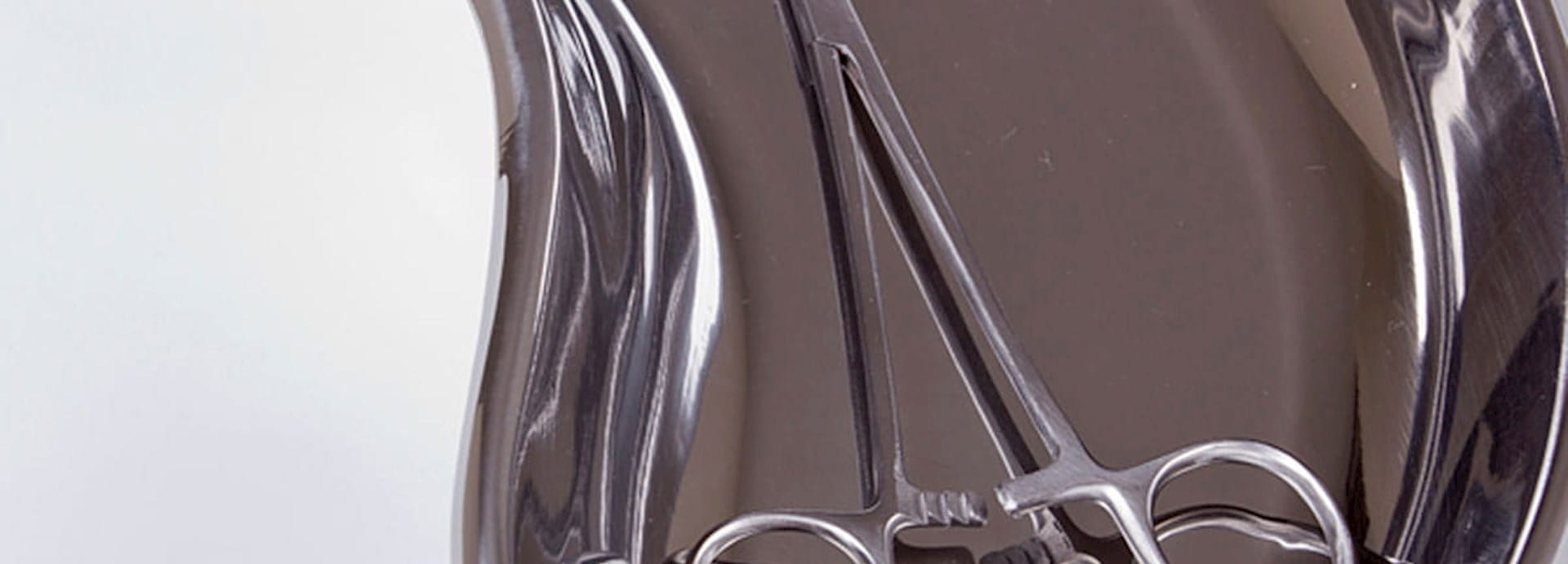Operative risk
BACKGROUND
Mrs K is 36 years old and presents at her GP surgery complaining of chronic abdominal and back pain. She also reports having heavy and painful periods and discomfort during and after sex. She is worried and depressed and it is affecting her marriage. The GP suspects Mrs K is suffering from endometriosis and refers her to a gynaecologist.
An appointment is made for Mrs K to attend at a private hospital for consultation with a gynaecologist – Ms T. The consultant confirms a history of deep dyspareunia and post-coital ache. The uterus is found to be very tender on pelvic examination. Ms T recommends a laparoscopy to find the exact cause of the pain and possibly treat. She discusses what is involved in the procedure and offers Mrs K a date within a few weeks.
Early on the morning of the procedure Mrs K meets the consultant briefly for a preoperative discussion and signs a standard consent form for: “Diagnostic laparoscopy +/- adhesiolysis +/- endometriosis treatment”. The procedure is carried out later that morning. An uncomplicated laparoscopic entry is made just below the umbilicus along with a second port inserted. A small area of endometriosis is noted in the Pouch of Douglas and lateral to the utero-sacral ligament. The endometriosis is cauterised with a helium beam coagulator. Mrs K recovers well from the anaesthetic and is discharged home later that evening.
The next day an on-call GP attends Mrs K at midday. She is suffering from severe abdominal pain and vomiting. An ambulance is called and she is transferred to an NHS emergency department. Here she is assessed and the history and examination is suggestive of peritonitis. Later that evening she undergoes an emergency laparotomy. Free fluid and fibrous exudate are found in the peritoneal cavity caused by leakage from the bowel.
Further exploration reveals two small “through and through” perforations in the ileum about 60cm from the ileo-caecal junction. The perforations are repaired and the peritoneal cavity lavaged with a drain left in situ. Mrs K undergoes a protracted recovery and is in hospital for another week with IV antibiotics. In subsequent visits over the next few months to her GP she complains of abdominal pain with tiredness and low mood.
Six months later Ms T receives a letter of claim from solicitors representing Mrs K alleging clinical negligence. In the letter it is claimed that the surgeon did not take reasonable care when carrying out the operation and also that she did not properly inform Mrs K of the risks involved in the procedure, including the risk of bowel perforation.
OUTCOME
MDDUS in acting for Ms T commissions an expert report from a consultant gynaecologist. Ms T produces a detailed account her treatment of Mrs K and this is examined along with other relevant documents including the patient records.
The expert judges that, given the patient’s history and the findings upon examination, it was entirely appropriate to suggest laparoscopy. In regard to consent the expert notes that the standard form used did not include an explicit record of discussion of the risks involved in the particular procedure. In her account of the case Ms T set out her standard consent procedure with a discussion of risk-benefit and mention of the small risk of bowel perforation. But the details of this discussion are recorded neither in the patient notes nor on the standard consent form.
Bowel perforation is a well-recognised complication of laparoscopy though relatively rare. In his assessment of the case the expert can find no negligence in the conduct of the procedure. He states: “it is a complication that will occur sooner or later at the hands of even the most experienced surgeon and no technique yet described for laparoscopy removes the risk”.
In his conclusion the expert finds no evidence of breach in the duty of care by Ms T in regard to the decision to operate or in conduct of the procedure and the patient’s post-operative care. His only concern is in regard to the contemporaneous documentation regarding consent and pre-operative discussion of the risks of the procedure. Specific written evidence of such discussion is lacking in the patient records.
MDDUS lawyers write back to the patient’s solicitors robustly countering the claims of negligence against Ms T. After further correspondence the claim is eventually dropped with no further action.
* Details have been changed to maintain anonymity

